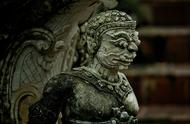这一节讲了内忧外患中的清廷与洋务派们的主张。
One such official was Wei Yuan (1794–1856), a midranking Confucian mandarin and associate of Lin Zexu, the Guangzhou governor whose crackdown on the opium trade had triggered British intervention and eventually forced him into exile.
这里有个问题,作者说林则徐的禁烟引发了英国的“干预”,首先这是侵略战争,不是干预,其次这是倒果为因的春秋笔法,英国不来卖鸦片,清廷就不会禁烟,禁或不禁都是中国的内政,英国无可置喙。
But what the West conceived of as a process of enlightenment was seen by some in China as a philosophical assault.
作者说,西方认为是启蒙运动,中国却认为是哲学(思想)上的突袭。
“启蒙运动”这个词随着它被公 知们滥用,以及与西式“自 由 民 主”绑定在一起,渐渐在中文网络变得带有贬义了。同样用来描述鸦片战争后中国被迫“开眼看世界”的过程,我也会产生相似的感觉。
During the negotiations that followed, the gap in perceptions was as wide as ever. The British pressed on with missionary conviction, presenting their negotiating positions as a public service that would at last bring China up to speed with the modern world.
英国人以传教般的信念推动谈判,此时他们已经占据了广州和大沽口,但是认为得到的还不够,他们劝说清廷,这是在帮助中国追赶上现代世界。
Palmerston dispatched Lord Elgin to lead a joint British and French march on Beijing, with orders to occupy the capital and “bring the Emperor to reason.” As retaliation for the “Dagu Repulse” and a symbolic show of Western power, Elgin ordered the burning of the Emperor’s Summer Palace, destroying invaluable art treasures in the process—an act still resented in China a century and a half later.
在前后三次大沽口战役后,英法联军决心跟中国皇帝“讲讲道理”,随即英法联军火烧圆明园,烧毁了许多无价的艺术品,一个半世纪后该行为仍为中国人所憎恨。
这种残暴的强盗行为至今仍未改变,比如法国在非洲的殖民掠夺,大英博物馆里装满了世界各国的文物,美军在叙利亚偷石油、在伊拉克偷黄金等等,然而他们还把自己当作文明国家、自 由灯塔,欧盟外交与安全政策高级代表博雷利的“花园与丛林理论”认为:“欧洲是花园,世界其他地方大部分都是丛林。而丛林可以入侵花园。我们必须更多地参与世界其他地方的事务,否则世界其他地方就会入侵我们...... ”
真好笑。
Barbarian claims of sovereign equality, once dismissed in Beijing as risible, shaded into ominous demonstrations of military dominance. Foreign armies occupied China’s capital and enforced the Western interpretation of political equality and ambassadorial privileges.
这里提到了两个平等,作者声称外国主张的是主 权平等和政 治平等,入侵别国、割占领土、索要赔款、*人放火…这是哪个位面的“平等”?
我一直非常不理解西方的这种厚颜无耻的同时对自身恶行的美化,前几天我看到Aaron Bushnell事件才意识到,他们的这种歪曲事实、极力美化自身的行为,不仅是为了让别人相信,也是为了让自己人相信。因为美国人里也有真心相信自己国家是在维护正义和和平的,他们是帝国的“六郡良家子”,一旦真相被戳破,信仰破灭的打击是毁灭性的,而这些人本可以成为这个国家最后的栋梁和基石。
很可惜这样的人既不能背叛国家,也不能泯灭良心去做那些肮脏的事情,最后只能选择如此惨烈的结局。而他去世后被美媒集体抹黑也表明帝国现在是“庙堂之上,朽木为官,殿陛之间,禽兽食禄”,一声叹息。
For these services Moscow exacted a staggering territorial price: a broad swath of territory in so-called Outer Manchuria along the Pacific coast, including the port city now called Vladivostok.14 In a stroke, Russia had gained a major new naval base, a foothold in the Sea of Japan, and 350,000 square miles of territory once considered Chinese.
沙俄从中斡旋,不费一兵一卒就攫取了包含海参崴在内的35万平方英里的中国土地。
清廷并非没有意识到沙俄的威胁,恭亲王奕䜣就曾在上书中称“俄国壤地相接,有蚕食上国之志,肘腋之患也”,但军事力量虚弱的清廷,只能在“以夷制夷”的方略下狼狈应对。
He carried himself with such otherworldly serenity that one British contemporary compared him, with a mixture of awe and incomprehension, to a visitor from another planet. China’s travails and concessions, his demeanor seemed to suggest, were but temporary obstacles on the route to the ultimate triumph of Chinese civilization.
基辛格似乎挺欣赏李鸿章,说他有一种来自另一个世界般的平静,令人困惑不解,似乎对他而言,中国的痛苦和让步都是通往最终胜利的道路上的暂时障碍。
其实我很好奇,作为一名百岁高龄还要跨洋飞往中国斡旋的老政治家,基辛格有没有同为“帝国裱糊匠”的感受,因此对李惺惺相惜?可惜他走早了,没有赶上帝国最后的崩溃。再晚五十年就好了。
The present situation is one in which, externally, it is necessary for us to be harmonious with the barbarians, and internally, it is necessary for us to reform our institutions. If we remain conservative, without making any change, the nation will be daily reduced and weakened…Now all the foreign countries are having one reform after another, and progressing every day like the ascending of steam. Only China continues to preserve her traditional institutions so cautiously that even though she be ruined and extinguished, the conservatives will not regret it.
李鸿章虽然是维护旧秩序的,但相比其他官僚,他对时局有更清醒的认识,认为改革迫在眉睫,他说守旧派“即使中国因守旧而灭亡,他们也不会后悔”,可见当时改革的压力之大。当时把国外的先进武器看作“奇技/yin/巧”的人不在少数,抱着“祖宗之法不可变”的思想盲目自大与民族自信有本质区别,就像作者提到,当时有一类总是叫嚣与外国开战却在军事上毫无准备的人。
我觉得美国现在也有点像,最口 嗨的总是议员们,反而前参联会主席马克米利一类军人出身的高官更谨慎。
Li argued that China should open schools in its major cities—including its capital, which it had fought so long to safeguard from foreign influence— to teach foreign languages and engineering techniques.
李鸿章提出来要在各大城市包括首 都开办学校,教授外语和工程技术。
有意思的是,现在的中国人可能比西方人还了解西方,英语几十年来作为必修课,确实给大家打开了一扇了解西方世界的大门,我一直觉得语言就是一个工具,借由对语言的掌握,我们可以了解其后的文化和思想。或许几十年后,欧美也要经历这种“开眼看世界”的阵痛,我期待他们把中文列为必修课的那一天。
Li framed the project as a challenge: “Are Chinese wisdom and intelligence inferior to those of Westerners? If we have really mastered the Western languages and, in turn, teach one another, then all their clever techniques of steamships and firearms can be gradually and thoroughly learned.”
李鸿章说:“中国人的智慧不如西方人吗?如果我们掌握了西方的语言并互相传授,那我们就能逐渐并完全地学会制造蒸汽船和火器的技术了。”
与很多“西方至上主义者”或“zhi人”不同,李并不认为我们的文化或者人种劣于西方,我们只是在科学技术上落后了。从这点来看他与基辛格有相似之处,至少他们都是爱国的。
我对李鸿章不甚了解,印象中电视剧《走向共 和》里对他的描绘跟本书中作者的观点类似。
,

















